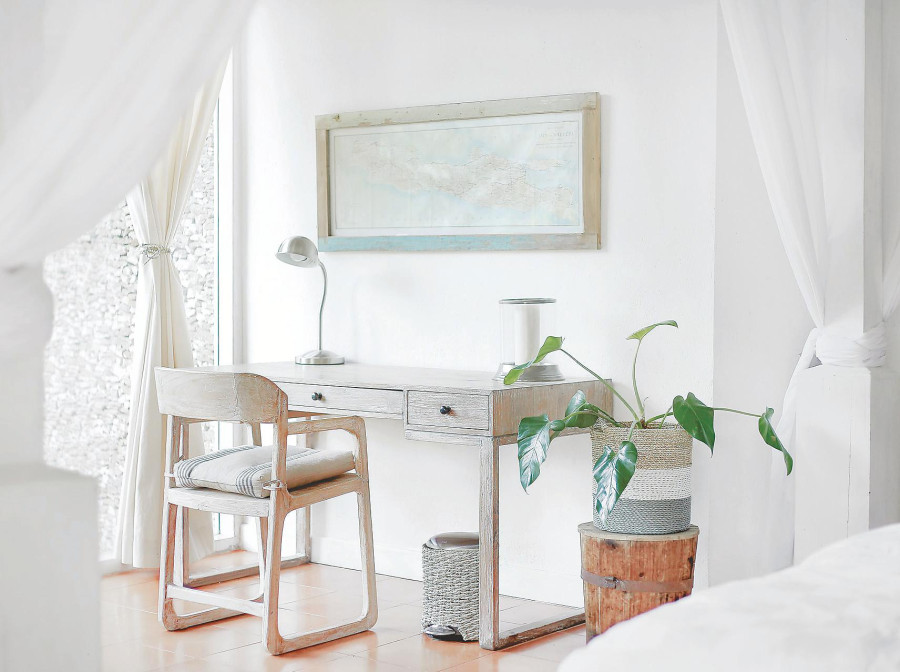Culture & Lifestyle
Embracing conscious living
Becoming minimalist is embracing conscious living by removing unnecessary clutter from our lives.
Prajit Pokharel
I ran into a long-lost childhood friend at a bookshop in Jamal a few days ago. Although it was our first encounter in more than twelve years, we promptly acknowledged each other. Prakrit and I went to the same school until grade 4. We watched the 2010 FIFA World Cup final together. That same year he moved to a different city with his parents, and we never saw each other after that.
Meeting him after 12 years had us both incredibly happy. After spending some time together, he asked me if I would like to accompany him to his rented apartment. I heartily agreed.
Upon reaching his place, I was pretty impressed to see his book collection. Heaps of books scattered hither and thither made the room look messy. It appeared as if he owned a bookstore.
“Out of all this, how many titles have you read so far?” I inquired.
“None,” came his succinct reply.
Picking up ‘Atomic Habits by James Clear’, he mentioned he was reading the book currently, but at a very slow pace.
“So you’ve bought all these books and let them pile up without going through them?” I asked.
“Oh yes! The thrill I get from browsing through a bookshop is unmatched, and whenever I find a title that catches my attention, I buy it without giving a second thought,” he responded.
“And how do you get the money to buy so many books?” I asked.
“My parents send me money, so I do not need to worry about my finances. They support me wholeheartedly and have no complaints regarding my book-buying habit,” he replied.
I was shocked to hear this. This reminded me of the Japanese word ‘Tsundoku’–-the art of acquiring books and letting them pile up but never getting around to reading them.
There is no denying that reading books is a good habit. Cultivating reading habits from an early age increases our chances of becoming successful in life. All successful people have one thing in common—they are habitual readers. Reading books enhances our knowledge, builds vocabulary, prevents cognitive decline, improves analytical skills, and helps us navigate life’s journey by making us better thinkers and problem-solvers. But how does this act of buying and stocking books and never reading those help us? Does this habit contribute to our personality development? Does it make us better people by helping us grow? I don’t think so.
The books we buy and share on social media posts may make us appear smart, but deep inside, we all know that unless we read the books, they are not going to prove fruitful. Holding books in hand, sniffing them, and leafing through the pages don’t serve their true purpose. If we want to improve our lives, we must not only buy books but also go through them by reading between the lines and actually implement the lessons the books impart. Reading one good book over and over and implementing its ideas is far better than buying hundreds of books and never getting around to reading any.
In late 2021, I watched a Netflix documentary, ‘The Minimalists: Less is Now’. This documentary changed my perspective on life and gave me a whole new direction. I used to be a stationery freak. I had hundreds of pens, inkpots of every brand available in Nepal and India, almost a dozen unused diaries, too many coloured papers, staplers, highlighters, sign pens, and unwritten notebooks, among others. Whenever I visited my maternal uncle’s home in Jhapa, I would go to Siliguri in India and buy as many stationery items as I could afford, as if I owned a stationery shop. After watching the documentary, I distributed all unwanted stationery items to school-going kids in my neighbourhood. They were extremely happy. And one of my New Year resolutions for 2022 was to become as minimalist in life as possible.
Becoming minimalist is embracing conscious living by removing unnecessary clutter from our lives. We should not become hoarders and only buy/own things that add value to our lives. A minimalist lifestyle facilitates savings and is eco-friendly. When we buy and consume less, we do less harm to the environment. It is characterised by simplicity, clarity, and usefulness.
Prakrit and I had a long and deep conversation that day. After listening to my story with all his heart, he promised me that from now onward, he would not spend a single penny mindlessly and impulsively. He agreed to donate most of the books to a library where I am an active member. He has taken a vow to embrace a conscious living not only in matters relating to books but also with shoes, clothes, electronics, and other stuff.
As I was preparing to leave Prakrit’s apartment, he blurted out, “By embracing a conscious lifestyle, I will not only save my parents’ hard-earned money but will also be taking a step towards fighting my inner demons and not giving into my urges to buy and stock things.”
“And not to forget, this act of yours is also good for the environment,” I smiled and offered a handshake.
We shook hands and parted ways.




 9.51°C Kathmandu
9.51°C Kathmandu

.jpg&w=200&height=120)













